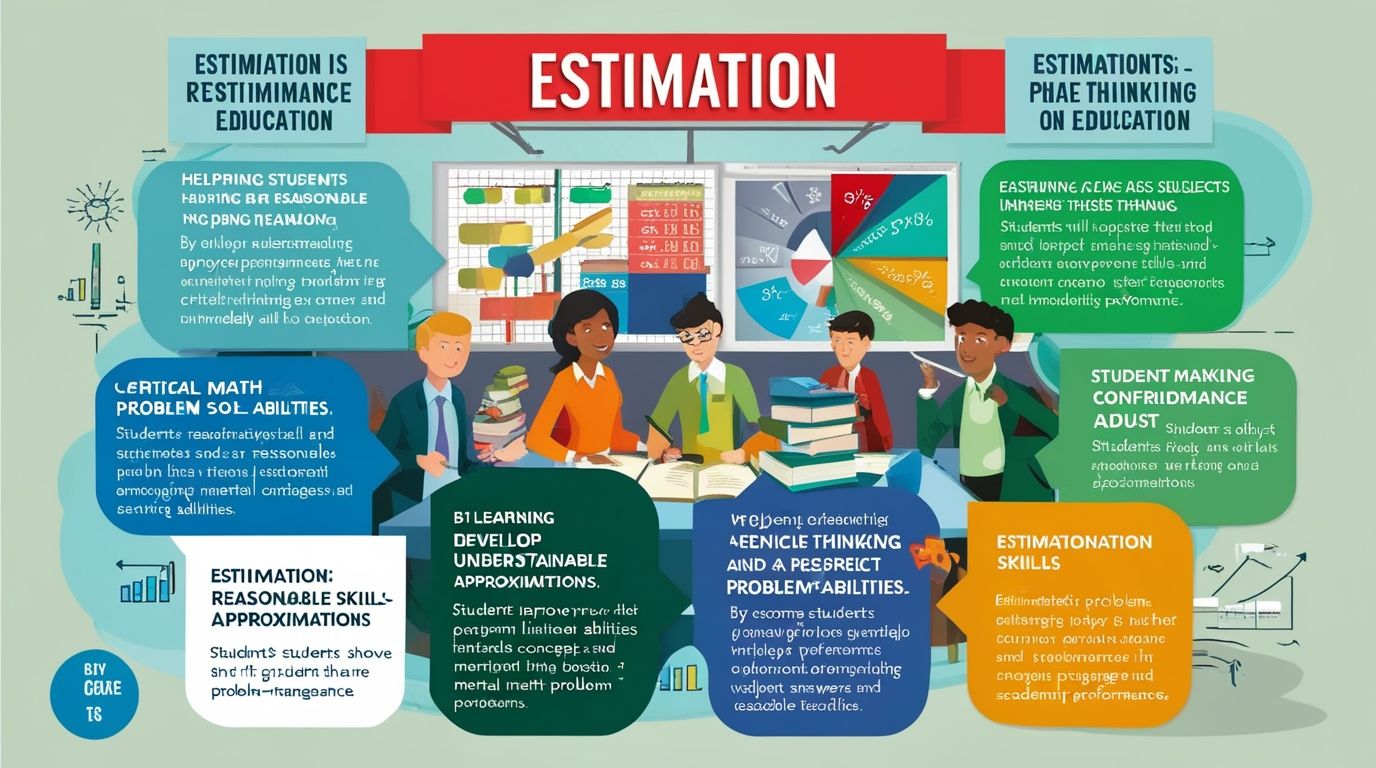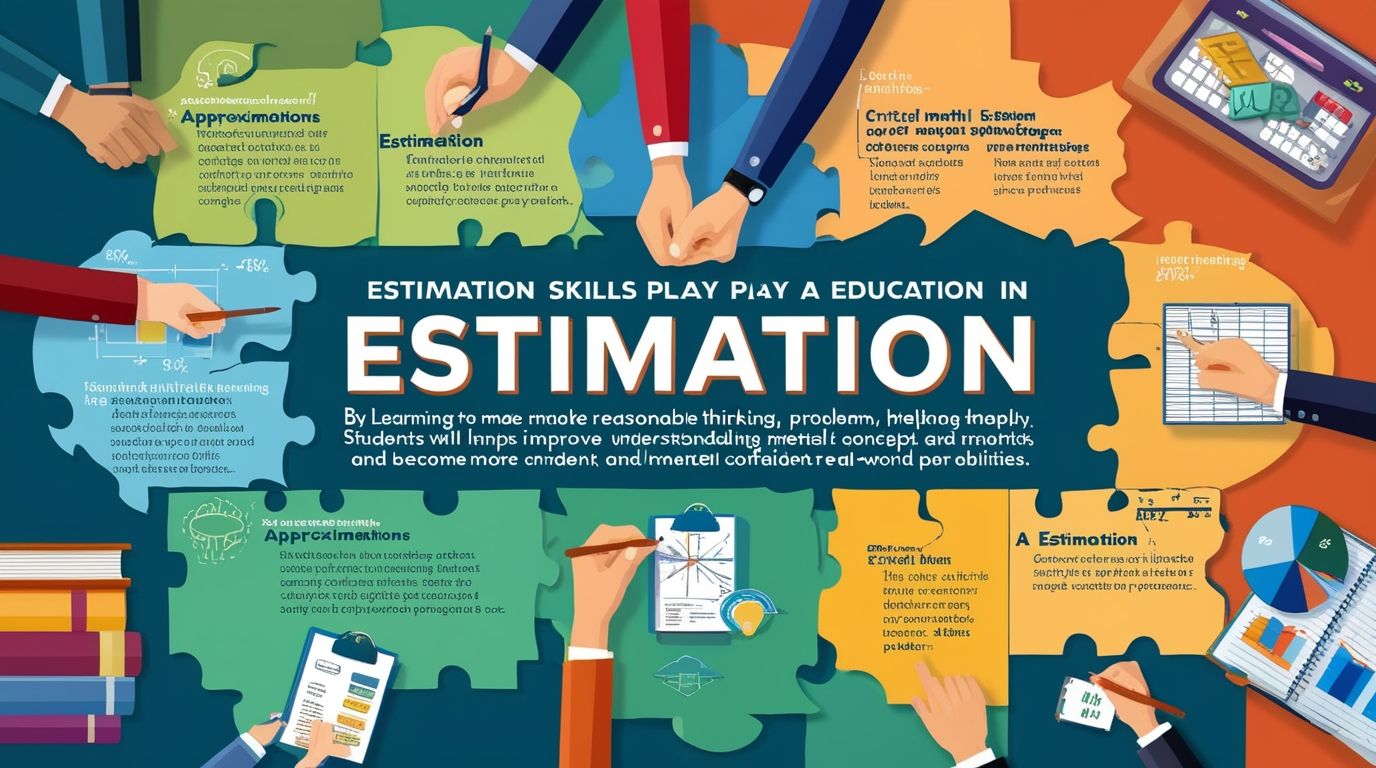Introduction
The Role of Estimation Skills in Education, Estimation skills are vital in our daily lives and play a crucial role in education, particularly in developing mathematical understanding and problem-solving abilities. These skills help students make sense of numbers, assess the reasonableness of answers, and develop a deeper understanding of mathematical concepts. In an age where data and quantitative reasoning are increasingly important, fostering estimation skills in educational settings is essential for preparing students for future challenges.
Understanding Estimation Skills
Estimation refers to the ability to make an educated guess about a quantity, size, or value without necessarily calculating it exactly. It involves a range of mathematical competencies, including rounding, comparing, and applying number sense. For example, when asked to estimate the total cost of a shopping trip, a student might round the prices to the nearest dollar and then add them together, rather than performing precise calculations for each item.
Estimation can be categorized into several types:
- Numerical Estimation: This involves making judgments about numerical values, such as estimating sums, differences, products, or quotients.
- Measurement Estimation: This includes estimating lengths, weights, volumes, and other measurements.
- Time Estimation: Estimating how long an activity will take or how much time has passed.
These forms of estimation can be applied across various subjects, enhancing students’ overall cognitive development.
Importance of Estimation Skills in Education
1. Enhancing Number Sense
Estimation skills significantly contribute to the development of number sense, which is the intuitive understanding of numbers and their relationships. A strong number sense enables students to engage with numbers confidently, making it easier for them to tackle more complex mathematical problems. For instance, when students estimate answers, they practice mental math, which reinforces their understanding of number relationships and promotes flexibility in thinking.
2. Promoting Problem-Solving Abilities
Estimation encourages critical thinking and problem-solving skills. When students are faced with real-world problems that require numerical solutions, estimation allows them to approach these problems strategically. For example, in a project where students must allocate resources, they may need to estimate costs and time efficiently. This practice fosters a mindset geared towards logical reasoning, enabling students to approach problems methodically.
3. Supporting Real-World Applications
In everyday life, estimation is frequently used in various contexts, from budgeting and cooking to planning travel and time management. By incorporating estimation skills into the curriculum, educators prepare students to navigate the real world more effectively. For instance, when students learn to estimate the total cost of groceries or the time needed to complete a task, they gain practical skills that are essential for adult life.
4. Enhancing Mathematical Accuracy
Interestingly, estimation skills can also improve accuracy in mathematical computations. When students estimate the answer to a problem before calculating, they create a mental benchmark. If the final answer deviates significantly from their estimate, it prompts them to re-evaluate their calculations. This practice reinforces the importance of checking work and can reduce errors in more complex calculations.
5. Fostering a Growth Mindset
Estimation encourages a growth mindset by allowing students to embrace uncertainty and recognize that mistakes are part of the learning process. Estimating involves trial and error, which can help students build resilience and confidence. When students see that their estimates can be off, they learn to reflect on their thought processes and improve over time. This mindset is critical for lifelong learning.

Strategies for Teaching Estimation Skills
To effectively integrate estimation skills into the educational framework, teachers can employ various strategies:
1. Incorporating Estimation in Daily Lessons
Teachers can begin each math lesson with a brief estimation activity. For example, they might ask students to estimate the sum of two or three numbers before calculating the exact answer. This practice can be extended to other subjects, such as science, where students might estimate the results of experiments or measurements.
2. Use of Visual Aids
Visual aids, such as number lines, graphs, and diagrams, can help students visualize numerical relationships and develop their estimation skills. For instance, using a number line can help students understand rounding concepts better and visualize where numbers fall in relation to one another.
3. Real-World Problems
Presenting students with real-world scenarios that require estimation can enhance engagement and relevance. Projects that involve budgeting, planning events, or calculating distances can provide practical applications for estimation skills, making learning more meaningful.
4. Group Activities
Group activities encourage collaboration and discussion among students, allowing them to share their estimation strategies and reasoning. For example, students could work in pairs to estimate the total cost of items in a mock store, discussing their thought processes and justifications.
5. Technology Integration
Incorporating technology, such as educational apps and online tools, can provide interactive ways for students to practice estimation. Many platforms offer games and exercises that focus on estimation skills, making learning enjoyable and accessible.
6. Continuous Assessment
Teachers can assess students’ estimation skills through formative assessments, such as quizzes or observation during group activities. Providing feedback on estimation processes can help students refine their skills and encourage improvement.
Challenges in Teaching Estimation Skills
While the importance of estimation skills is clear, several challenges can hinder their effective teaching:
1. Curriculum Constraints
In many educational systems, the curriculum focuses heavily on exact calculations and standardized testing. This emphasis can lead to a neglect of estimation skills, making it essential for educators to advocate for a balanced approach that includes both exact calculations and estimation.
2. Student Mindset
Some students may feel anxious about estimating or may view it as less rigorous than precise calculations. Educators need to help students understand that estimation is a valuable skill and not merely a shortcut.
3. Teacher Preparedness
Not all educators feel confident in teaching estimation skills, particularly if they themselves struggled with them in their own education. Professional development opportunities can help teachers build their understanding and teaching methods related to estimation.
Conclusion
Estimation skills play a fundamental role in education, enhancing students’ number sense, problem-solving abilities, and real-world applications. By integrating estimation into the curriculum through various strategies, educators can empower students to navigate mathematical challenges confidently and prepare them for the complexities of everyday life. As the educational landscape evolves, prioritizing estimation skills will be crucial in fostering a generation of critical thinkers and effective problem solvers. In doing so, we ensure that students not only understand mathematics but also appreciate its relevance and utility in their lives.

9 thoughts on “The Role of Estimation Skills in Education”
Comments are closed.